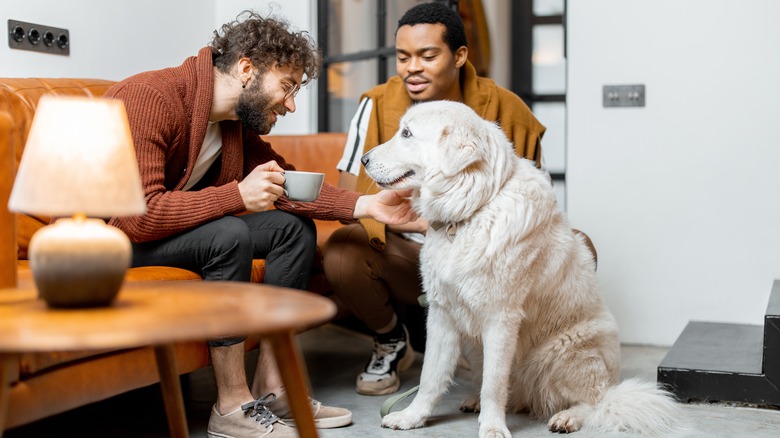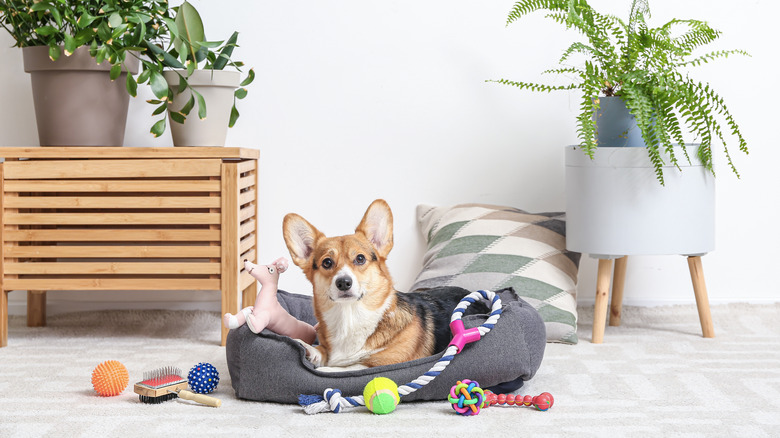Everything You Need To Know About Monkeypox Transmission From Humans To Pets
While the monkeypox virus was previously thought to be spread from animal-to-human and then human-to-human, scientists have found evidence of the first suspected case of human-to-pet monkeypox transmission. According to a new report published in The Lancet, doctors from Pitié-Salpêtrière Hospital in Paris treated two cohabiting men exhibiting symptoms of monkeypox, including fever, rash, and headaches (via Medical News Today). Nearly two weeks later, the patients' Italian greyhound also started showing signs of monkeypox, testing positive for the virus and developing lesions. The dog's owners told the doctors that they let the dog sleep in the same bed as them.
Dr. Richard Silvera, an infectious disease specialist at Mount Sinai, told Medical News Today that it's not surprising that monkeypox could be transmitted to a dog from its owners, inferring that the greyhound seemed to have contracted it through either skin-to-skin contact or by touching fabrics worn or slept in by someone who was infected. "So I imagine if you had a lesion on your hand and you pet your dog, you could theoretically infect the dog that way," Silvera said. "Or if you have lesions on your body, you slept in a bed, and then the dog also slept in that bed, that would be a way of transmitting." Dogs may not be the only pets susceptible to catching monkeypox from their owners, however. As it turns out, other pets, like cats and rabbits, may also be at risk of contracting the virus.
How to protect your pets from monkeypox
If you test positive for monkeypox, there are a few things you should and shouldn't do to help protect your pets from contracting the virus. For instance, if you've had little physical contact with a pet after showing symptoms, it's best to let a friend or family member in a different household look after your pet until you fully recover from the virus (via NPR). Before bringing your pet back home, make sure you thoroughly sanitize your home to help kill any lingering germs.
If you don't have anyone willing to look after your pet, however, you can minimize the risk of transmitting monkeypox to your animal by washing your hands both before and after taking care of them, covering any rashes or lesions on your skin, and wearing gloves and a mask when in close proximity to your pet. That being said, you should try to avoid close contact with your pet as much as possible and refrain from exposing them to any used bandages or bodily fluids. If your pet starts showing signs of coughing, fever, reddened eyes, runny nose, low energy, or lack of appetite, you should contact a veterinarian right away (per Medical News Today).


